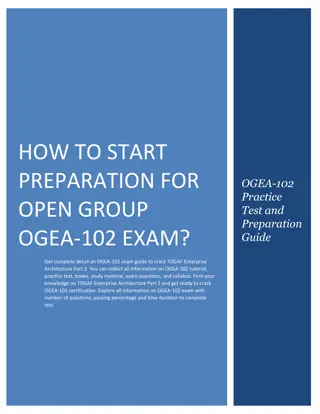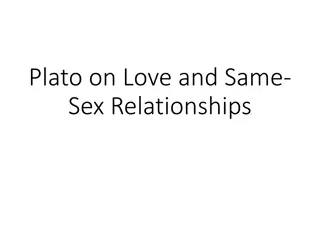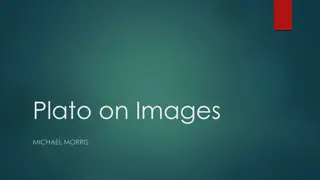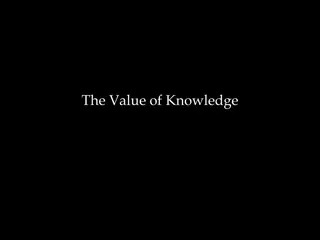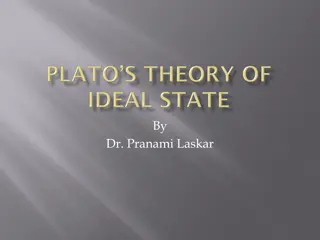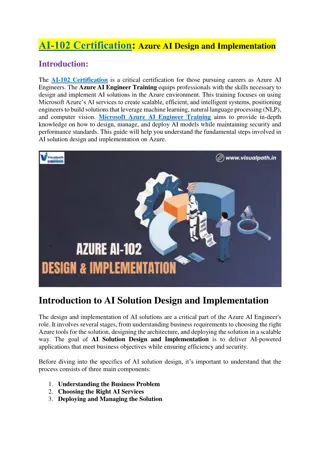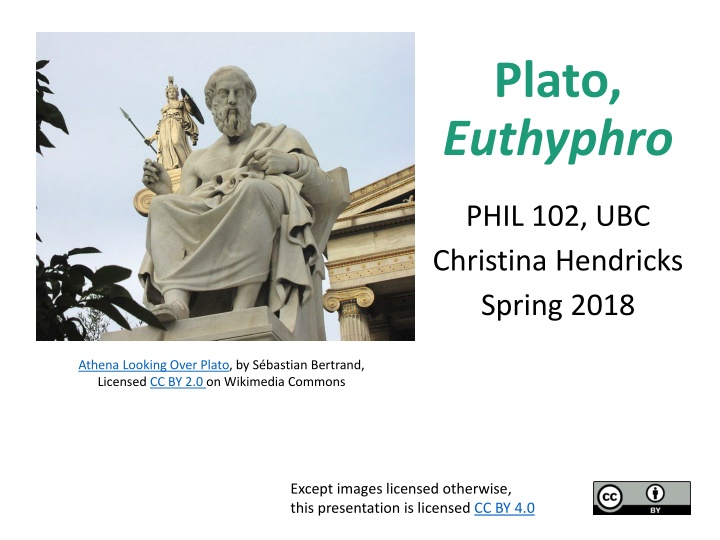
Understanding Socrates' Method in Euthyphro's Dialogue
Delve into Socrates' method of discussion in Plato's Euthyphro, exploring key questions about piety and impiety, examining different definitions put forth, and analyzing Socrates' criticisms of these definitions. Learn about the characters, settings, and the significance of the dialogue.
Download Presentation

Please find below an Image/Link to download the presentation.
The content on the website is provided AS IS for your information and personal use only. It may not be sold, licensed, or shared on other websites without obtaining consent from the author. If you encounter any issues during the download, it is possible that the publisher has removed the file from their server.
You are allowed to download the files provided on this website for personal or commercial use, subject to the condition that they are used lawfully. All files are the property of their respective owners.
The content on the website is provided AS IS for your information and personal use only. It may not be sold, licensed, or shared on other websites without obtaining consent from the author.
E N D
Presentation Transcript
Plato, Euthyphro PHIL 102, UBC Christina Hendricks Spring 2018 Athena Looking Over Plato, by S bastian Bertrand, Licensed CC BY 2.0 on Wikimedia Commons Except images licensed otherwise, this presentation is licensed CC BY 4.0
Your questions & thoughts What questions do you have about this text? How would you characterize Socrates method of discussion in it? How does he act? http://is.gd/phil102_euthyphro_18 Case sensitive! Underscores!
(More) background to dialogue Who are these people? What is the significance of the setting? Piety ? Dublin Castle Gates of Fortitude & Justice, By J.-H. Jan en, licensed CC BY-SA 3.0
What kind of definition is Socrates looking for? Is not piety in every action always the same? And impiety, again is it not always the opposite of piety having one notion which includes whatever is impious? (p. 4) Piety Act 1 Act 2 Act 3
Group activity In the pages assigned to your section of the room, find one definition of piety and Socrates criticism of it, and write down here: http://is.gd/phil102_euthyphro_18 Right side of room (when facing forward): pp. 5-7 Middle of room: pp. 8-10 Left side of room: pp. 14-16
Arguments Conclusion: A statement that one is trying to show is true, by providing reasons Premises: Reasons provided in order to support the conclusion, to show it is true
Sample arguments Sample conclusions: Cats are better pets than dogs Flying is safer than driving It makes sense for Canada to have a law against driving while under the influence of marijuana
Outline an argument from Euthyphro Euthyphro s second definition of piety: Piety, then, is that which is dear to the gods, and impiety is that which is not dear to them (5). Outline on the board Socrates argument for what is wrong with this
Es 3rd definition of piety what all the gods love is pious (8) Could mean two things: (A) (B) Certain acts are pious Gods love certain acts Loved by gods b/c they are pious Acts are pious first, then loved by gods These are pious b/c loved by the gods Gods love acts first, then they become pious
Pious what is dear to gods one is of a kind to be loved because it is loved [B], and the other is loved because it is of a kind to be loved [A] (10). Euthyphro provided an attribute only, not the essence of piety (10). Ancient Greek temple image licensed CC0 on pixabay.com
Larger implications Piety We can use our own reason to determine this Acts are pious Criticism of divine command theory of ethics Gods love those acts



